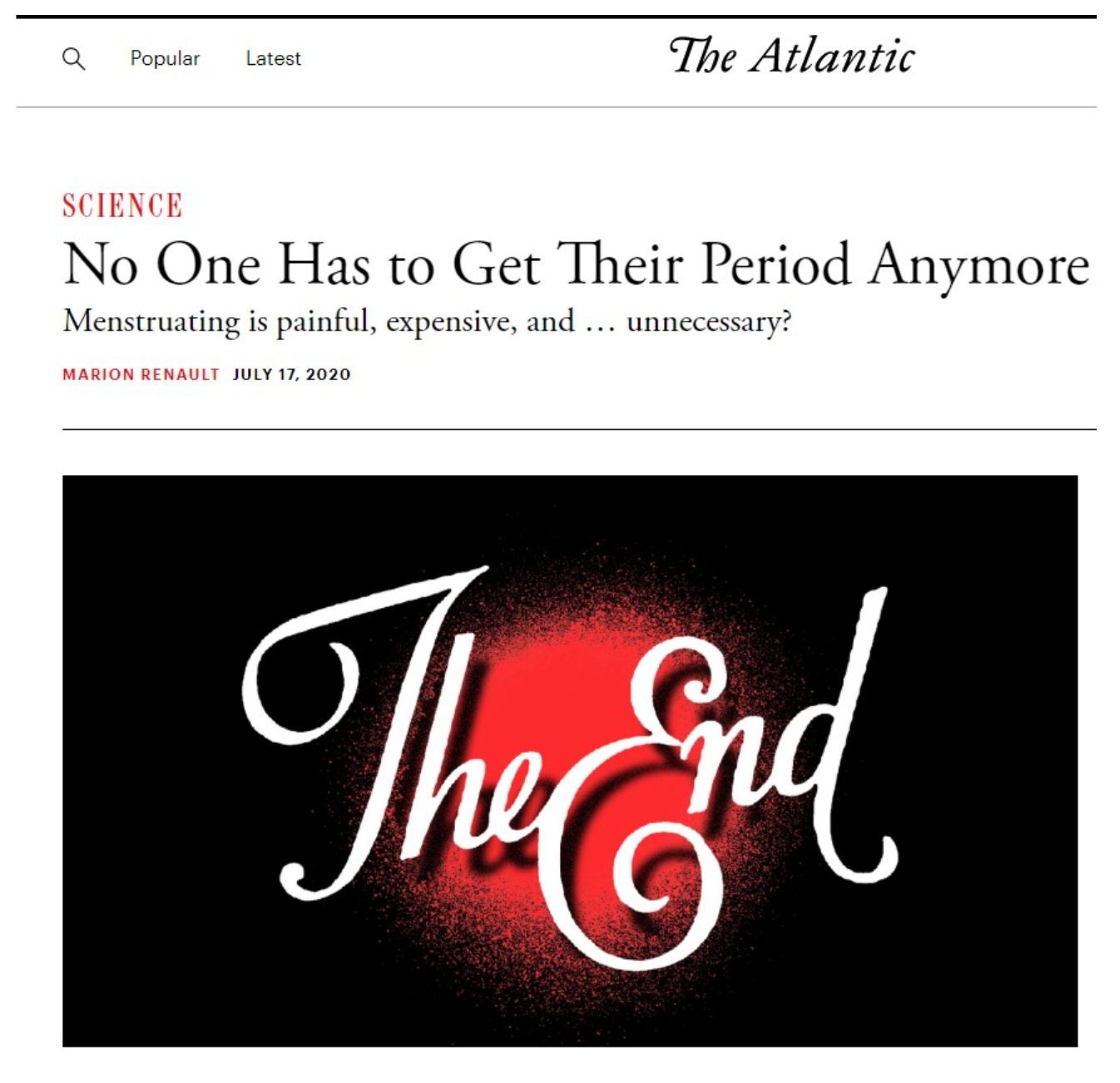
You read that headline precisely right. Editorially, it is a truly bizarre article from a once-great magazine, struggling hard to find its footing in the woke ideological tumult that is cannibalizing The New York Times.
The Atlantic story is an otherwise perfectly fine piece about how, as science writer Marion Renault puts it, “menstruation has now become an elective bodily process” because of interesting and controversial advances in women’s health care. As Sophia Yen, a pediatrics professor at Stanford Medical School cited in the article, put it, “We now have the technology to make periods optional.”
The real story, however, is the way the editors at The Atlantic tortured the piece beyond any sense of reason or logic to ensure its readers swallow the idea that both men and women have periods and no one should think otherwise. But in an ironic twist, The Atlantic conveys that science now says men don’t have to have periods anymore. When you ardently deny the most basic of realities, this is the craziness that follows. As with any good article, it starts with the title.

The Atlantic uses “No One” and “Their” because of course it would be wrong to use “her” in reference to people who menstruate. It also employs tinny phrases that pain the ear, such as “people who have periods.” As one might expect, its language game T-bones reality soon enough: “If more people chose to silence their period — or even just dial down the volume — that would mean a decrease in iron deficiency (which women experience at far higher rates than men).”
See what The Atlantic did there? This science writer slipped into objective science talk amid her ideological gender dogma, and neither she nor her editor caught it. She stated the objective, scientific fact that women (actual biological ones) have higher iron deficiency rates than men in an article laboring to explain there are no differences between men and women in menses. Can we expect a mea culpa retraction that The Atlantic regrets implying iron deficiency from menses is not a problem for men?
The article goes on to say, “The cost of so-called feminine products can add up to thousands of dollars over a person’s lifetime” (emphasis added). The use of “so-called” is curious, as feminine products are so called because of females’ exclusive need for them.
In reference to actual, academic, published research on women and how they manage their literal feminine hygiene, The Atlantic editors include this parenthetical clarification:
A recent study found that nearly two-thirds of low-income women surveyed in St. Louis couldn’t afford menstrual-hygiene products during the previous year. (This study, and others cited in this story, did not specify whether participants included trans men or nonbinary people who get periods).
Of course they didn’t specify. The respected medical journal Obstetrics & Gynecology and the study’s authors were not shy in the least about using feminine terms in reference to their study subjects nor in saying that it is women who use feminine hygiene products. Reuters did the same in reporting on the study.
What The Atlantic science writer and editors refuse to acknowledge is that no science supports the idea that a trans woman, or biological man, is actually a woman. Science has found nothing in DNA, the brain, nor any other part of the human body that demands this conclusion. “[T]rans men or nonbinary people who get periods” are simply women. Desiring reality to be different does not make it so.
We must all be clear on this point: The Atlantic and others that have followed suit, such as the New York Times and the New Yorker, took this odd editorial side road simply for ideological reasons. They want to believe a man can indeed become a woman and vice versa by force of mere self-understanding and declaration.
If outlets such as PinkNews get all bent, as they did last week, because a major U.K. charity says cervical cancer is a women’s issue, then that’s fine. It is an LGBT site speaking to its own audience. That’s what it does.
But when serious, mainstream outlets join in, as if the new language of gender theory speaks of something objectively and universally real, as if it is rooted at all in science or medicine, that’s a problem. And it’s a serious one because it toys perniciously with reality, pretending one of the most beautiful, mysterious, and consequential parts of being human is not actually what all the rest of us know it to be.
This turn from truth must be resisted passionately by a reasonable and reasoned people, for a baseless, unfounded ideology created out of sheer feeling is a brutal taskmaster.









